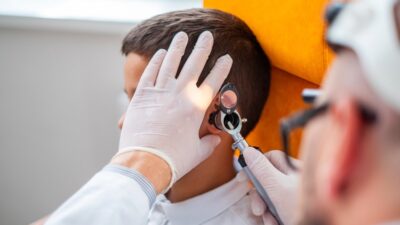Have you ever experienced a sudden loss of consciousness, followed by a quick recovery and confusion about what happened? This common occurrence is known as syncope or fainting, and it can be caused by various factors, from dehydration to low blood sugar. While The Woodlands syncope may seem harmless, it can sometimes be a warning sign of serious underlying health issues that require medical attention.
Table of Contents
Reasons to seek medical attention
It is vital to seek medical attention if you experience syncope, especially if it happens frequently or is accompanied by other symptoms such as chest pain or shortness of breath. Your doctor may run tests to determine the underlying cause, such as an electrocardiogram (ECG) to check your heart’s electrical activity or a tilt table test to monitor your blood pressure while changing positions.
Here are some ways fainting can indicate a more severe problem:
- Cardiovascular issues: Fainting can be a symptom of cardiovascular issues such as an arrhythmia or a heart attack. These conditions can cause a sudden drop in blood pressure, which leads to fainting.
- Neurological issues: Neurological disorders such as seizures, stroke, or transient ischemic attacks (TIAs) can also cause fainting. These disorders affect the brain and can cause a sudden loss of consciousness.
Syncope treatment options
Here are some of the treatment options you should know:
- Identifying and treating underlying conditions: If an underlying medical condition causes syncope, treating that condition is the primary focus. For example, if syncope is caused by an irregular heartbeat, medication or a pacemaker may be prescribed to regulate the heart.
- Lifestyle changes: Sometimes, making lifestyle changes can help prevent syncope. This might include drinking more fluids, avoiding alcohol, and standing up slowly to avoid sudden drops in blood pressure.
- Medication: Certain medications can help regulate blood pressure and prevent fainting. Your doctor may prescribe medication to treat underlying conditions or to help prevent syncope.
- Cardiac procedures: For some patients, cardiac procedures may be necessary to correct underlying heart conditions. These might include surgery or the implantation of a pacemaker.
- Implantable loop recorders: For patients whose syncope is difficult to diagnose, an implantable loop recorder can help. This device records heart rhythms for up to three years, allowing doctors to monitor heart activity and diagnose any issues.
Living with syncope can be challenging, but there are steps you can take to manage the condition and reduce the risk of fainting episodes. Here are some tips to help cope with syncope:
- Stay hydrated: Dehydration can trigger fainting, so drinking plenty of fluids throughout the day is essential.
- Avoid triggers: Certain triggers, such as standing for long periods, hot environments, or sudden changes in position, can cause syncope.
- Wear compression stockings: Compression stockings can help improve blood flow to the legs and prevent fainting.
It is vital to note that treatment plans for syncope will vary depending on the underlying cause and severity of the condition. Always consult your doctor at Houston Sinus Surgery to determine the best course of action for your needs.










Comments